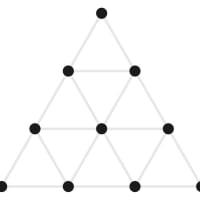
'emotion is the chief source of all becoming
conscious...there can be no transforming of darkness into light and of apathy into movement
without emotion ...- carljung
「情動はすべての人が意識する主な原因です...
情動がなければ、闇を光に、無関心を動きに変えることはできません...-カール・グスタフ・ユング
A
感情は意識の主要な源である。感情なくして、闇から光へ、無関心から運動への変化はありえない] 。
"対立を煽ることは、本当の意味でルシファーの美徳である。葛藤は火、つまり感情と情動の火を生み出し、他のあらゆる火と同様に、燃焼と光を生み出すという2つの側面を持っている。一方で、感情は錬金術の火であり、その暖かさはすべてのものを存在させ、その熱はすべての余分なものを灰にする。しかし一方では、感情は鋼と火打ち石が出会い、火花が散る瞬間であり、感情は意識の主要な源だからです。感情なくして、闇から光への変化、惰性から運動への変化はない。"
~C.G.ユング『母型の心理学的側面 集合的無意識のアーキタイプ』第179段
A
意識が発生する方法は2つあります。一つは、感情的な緊張が高まる瞬間で、『パルジファル』で主人公が最大の誘惑にさらされた瞬間に、アムフォルタスの傷の意味を突然悟るシーンに匹敵する。もう1つは、夢のようにアイデアが頭の中を通り過ぎていく瞑想状態です。一見バラバラに見える2つのアイデアの間に、ふとした瞬間に関連性が生まれ、それが潜在的な緊張を解き放つ効果をもたらす。このような瞬間は、しばしば天啓のように作用する。どのような場合でも、意識を生み出すのは、外的であれ内的であれ、エネルギー的な緊張の解放であると思われる。~CGユング、「分析心理学と教育」、CW17、par. 207.
A
"私がこの夢やビジョンで経験した客観性は、完成した個性の一部です。それは、評価や、いわゆる感情的な結びつきからの離脱を意味します。一般的に、感情的なつながりは人間にとって非常に重要です。しかし、感情的な結びつきにはまだ投影が含まれており、自分自身と客観性を獲得するためには、これらの投影を取り去ることが不可欠です。感情的な関係は欲望の関係であり、強制と束縛に汚染されています。つまり、相手に何かを期待し、それが相手と自分を自由にしないのです。客観的な認識は、感情的な関係の魅力の背後に隠れており、それが中心的な秘密であるように思われます。客観的な認識があってこそ、本当の意味でのコニュニティが可能になるのです。"
~カール・ユング『記憶・夢・反省』296ページ
注
emotion 情動
feelings 感情
A
[emotion is the chief source of consciousness. There is no change from darkness to light or from inertia to movement without emotion]
“The stirring up of conflict is a Luciferian virtue in the true sense of the word. Conflict engenders fire, the fire of affects and emotions, and like every other fire it has two aspects, that of combustion and that of creating light. On the one hand, emotion is the alchemical fire whose warmth brings everything into existence and whose heat burns all superfluities to ashes. But on the other hand, emotion is the moment when steel meets flint and a spark is struck forth, for emotion is the chief source of consciousness. There is no change from darkness to light or from inertia to movement without emotion.”
~C.G. Jung, Psychological Aspects of the Mother Archetype Archetypes of the Collective Unconscious Paragraph 179
A
There are two distinct ways in which consciousness arises. The one is a moment of high emotional tension, comparable to the scene in Parsifal where the hero, at the very moment of greatest temptation, suddenly realizes the meaning of Amfortas' wound. The other is a state of contemplation, in which ideas pass before the mind like dream-images. Suddenly there is a flash of association between two apparently disconnected and widely separated ideas, and this has the effect of releasing a latent tension. Such a moment often works like a revelation. In every case it seems to be the discharge of energy-tension, whether external or internal, which produces consciousness. ~CG Jung, "Analytical Psychology and Education," CW 17, par. 207.
A
“The objectivity which I experienced in this dream and in the visions is part of a completed individuation. It signifies detachment from valuation and from what we call emotional ties. In general, emotional ties are very important to human beings. But they still contain projections, and it is essential to withdraw these projections in order to attain to oneself and to objectivity. Emotional relationships are relationships of desire, tainted by coercion and constraint; something is expected from the other person, and that makes him and ourselves unfree. Objective cognition lies hidden behind the attraction of the emotional relationship; it seems to be the central secret. Only through objective cognition is the real conuinctio possible.”
~Carl Jung, Memories, Dreams, Reflections, page 296
A
"しかし、感情のどこがポジティブなのでしょうか?何かに感情的になっていれば、それを理解することができます。自分の問題などに感情的になっていなければ、何も出てきません。
感情がないところには、生命はありません。もしあなたが何かを暗記しなければならないとしても、それがあなたにとって興味のないものであれば、そこには火がなく、たとえ50回読んだとしても記憶には残りません。しかし、感情的な関心があれば、一度だけ読めばそれがわかるようになります。したがって、感情は意識の担い手であり、感情なしには意識の進歩はありません。
破壊的な側面は、喧嘩の中に現れ、そこで私たちを蝕みます。相手は「破壊的な感情を出すとひどい目に遭う」と言いますが、感情を出さなければ感情に食われてしまうのです。あなたは、感情を自分の中に留めておくことがどれほど楽しいかを知っています。もしあなたがネガティブな感情を外に出さないなら、それはあなたを内側から食い尽くすだけで、あなたの中には何時間もうなる犬がいるのです。
ここには邪悪な感情が暗示されています。"火は集会で燃やされ、その炎は地上の不敬虔な者を焼き尽くした。" 不敬な人たち、罪人たちが焼き尽くされることです。そして、こう言われています。"彼は自分の内なる尺度で火を消す。"
これは心理学的に非常に重要なことです。人は分析の中で何度も何度も、あなたに恋をしている、あるいはあなたを憎んでいると言いますが、彼らはそれが非常に理不尽なことだと分かっていると言います。"私は狂っていないし、合理的に振る舞うこともできるが、そのことがまだ残っている。どうか私を救ってください。全てがナンセンスであることを知っているだけでは不十分なのです。"
それに対する答えは受け入れがたいものです。火は火を燃やさなければならない、人は火が消えてバランスが取れるようになるまで、ただ感情のままに燃えるしかないのです。それは、残念ながら回避できないことです。炎の燃焼、つまり感情の燃焼は、人のシステムから騙すことはできません。それを取り除くためのレシピはありません。火は、最後の汚れた要素が消費されるまで燃やさなければなりません。これは、すべての錬金術のテキストがさまざまなバリエーションで述べていることであり、私たちも他の方法を見つけていません。死すべきもの、腐るべきものが燃え尽きるまで、あるいは、テキストが見事に言っているように、腐りやすい湿気、無意識が燃え尽きるまで、それを妨げることはできず、ただ苦しむだけです。それが意味するところは、苦しみを受け入れるということです。
もし人が1万匹の悪魔で満たされているならば、彼らが静まり返るまでは、彼らの中で燃え尽きるしかありません。分析者や他の誰かに、ある種の慰めのトリックで人を救済すべきだという幼児的な要求をしても、何の役にも立ちません。アナリストがそのようなことができると言っても、そんなものは存在しないので、その人はただのヤブ医者であり、いずれにしても意味のないことである。分析者を苦しみから解放しようとすることは、分析者から最も価値のあるものを奪うことになる。
地獄に座ってそこで焼かれることが、哲学者の石を生み出すのです。ここで言われているように、火は自分の内側の尺度で消されます。情熱には内的な尺度があります。混沌としたリビドーというものはありません。純粋な自然としての無意識自体が内的なバランスを持っていることを知っているからです。バランスが取れていないのは、意識的な態度の幼稚さからくるものです。もしあなたが自分の情熱をその指示に従ってのみ従えば、それは決して行き過ぎることはなく、常に自らの敗北につながるでしょう。
A
“Yes, but what is positive about emotion? It transforms, cooks, and enlightens, that is the way in which fire brings light: if I am emotionally gripped by something I can understand it; if I am not emotionally wrestling with my problems, or something else, then nothing comes out.
Where there is no emotion there is no life. If you have to learn something by heart and it is of no interest to you, there is no fire; it does not register, even if you read it fifty times. But as soon as there is emotional interest, it need only be read once and you know it. Therefore emotion is the carrier of consciousness, there is no progress in consciousness without emotion.
The destructive aspect appears in quarrels, there it eats us up. The other person says it is terrible when you let out your destructive emotion, but if we don't let it out, then emotion eats us up. You know how enjoyable it is if you keep an affect to yourself; if you don't let your negative emotion out it just eats you up from within, there is a growling dog within you for hours.
Here there is an allusion to evil emotion: "The fire was kindled in the assembly and the flame consumed the impious on earth." It is the burning up of impious people, of sinners. And then it is said: "He extinguishes the fire in its own inner measure."
Psychologically that is very revealing. Again and again people say in analysis that they are in love with you, or hate you, although they say they know it is quite unreasonable: "I am not crazy, I can behave and be reasonable, but the thing is still there, what can I do about it? Please redeem me! It is not enough for me to know it is all nonsense."
The answer to that is hard to accept: the fire has to burn the fire, one just has to burn in the emotion till the fire dies down and becomes balanced. That is something which unfortunately cannot be evaded. The burning of the fire, of the emotion, cannot be tricked out of one's system; there is no recipe for getting rid of it, it has to be endured. The fire has to burn until the last unclean element has been consumed, which is what all alchemical texts say in different variations, and we have not found any other way either. It cannot be hindered but only suffered till what is mortal or corruptible, or, as our text says so beautifully, till the corruptible humidity, the unconsciousness, has been burnt up. That is the meaning, it is the acceptance of suffering.
If one is filled with 10,000 devils one can only be burnt up in them until they quiet down and are still, and the infantile demand on the analyst or anybody else, that he should redeem one with some kind of comforting trick, does not help. If an analyst pretends he can do that, then he is just a quack, because there is no such thing, and anyway it would be meaningless. If he tries to get analysands out of the suffering it means he takes away from them what is most valuable; cheap comforting is wrong, for by that you get people away from the heat, the place where the process of individuation takes place.
Sitting in Hell and roasting there is what brings forth the philosopher's stone; as it is said here, the fire is extinguished with its own inner measure. Passion has its own inner measure; there is no such thing as chaotic libido, for we know that the unconscious itself, as pure nature, has an inner balance. The lack of balance comes from the childishness of the conscious attitude. If you only follow your own passion according to its own indications it will never go too far, it will always lead to its own defeat.
劣悪な情熱は敗北を求める。異常に情熱的な性質、一種の悪魔のような性質を持つ人は、自分が頭を下げられるような人間や状況を愛情を込めて探しており、自分の情熱が勝つような相手や状況を軽蔑しています。本能的に敗北を求めているのです。彼らの中の何かが、この悪魔の頭を叩かなければならないことを知っているかのようです。だからこそ、このような炎に対して親しみを感じたり、弱気になったり、理解を示したりしても、その人を助けることはできません。情熱の火は、それを消してくれるものを探しています。だからこそ、個性化への衝動は、それが自然な過度の衝動である限り、不可能な状況を求めるのです。葛藤や敗北や苦しみを求めるのは、自分自身の変化を求めるからです。
例えば、ある人がパワーデビルに憑依されているとしましょう。彼は家族全員を支配し、外でも仕事でも支配し続けますが、それでも落ち着かないのです。彼は本当に自分を克服できる人を探しているのです。それが彼の切望することなのですが、当然ながら彼はそれを好みません。彼はそれを嫌っているが、同時に誰か、あるいは何かが自分を克服し、自分の力を終わらせてくれることを切望しているという、曖昧な態度をとっている。境界例の治療では、このことを知っておくことが非常に重要です。彼らは通常、途方もない感情に苦しみ、常に分析者が反撃することを期待し、恐れながら、すべての衝撃を分析者に与えようとします。~マリー=ルイーズ・フォン・フランツ『錬金術』252-255ページ
A
感情についてのユングの言葉を読んでみるといいかもしれませんね。
"あなたが感じるこれらの痛みはメッセンジャーです、彼らに耳を傾けてください。" ~ルミ
"あなたを悩ませているもの、あなたを苛立たせているもの、それがあなたの教師です。"
~アジャーン・チャー(Ajahn Chah)。
Inordinate passion seeks defeat. People who have an inordinately passionate nature, a kind of devilish nature, are lovingly searching for a human person, or a situation, against which they can knock their heads, and they despise any partner or situation in which their passion wins out. Instinctively they seek defeat. It is as though something within them knows this devil has to be hit on the head, which is why if one is friendly or weak, or understanding towards such fire, one does not help the person; generally such people walk out on you, because that is not what they want. The fire of the passion looks for that which will extinguish it, and that is why the urge for individuation, as long as it is a natural inordinate urge, seeks impossible situations; it seeks conflict and defeat and suffering because it seeks its own transformation.
Let us say someone is possessed by a power devil. If he can dominate people in his surroundings he is not happy, but remains restless; he dominates the whole family and goes on dominating outside and in his professional life, but he is still restless. He is really searching for someone who can overcome him; that is what he longs for, though naturally he does not like it. It is an ambiguous attitude, for he hates it but at the same time longs for somebody or something to overcome him and put an end to his power. It is very important to know that in the treatment of borderline cases, for they usually suffer from tremendous emotions and always try to let the whole impact fall on the analyst in the hope and fear that he will hit back; that is because the fire knows its own inner measure.“ ~Marie-Louise von Franz, Alchemy, pp. 252-255
A
You might do well to read more on what Jung had to say about emotions...
“These pains you feel are messengers, listen to them.” ~Rumi
"Anything which is troubling you, anything which is irritating you, that is your teacher."
~Ajahn Chah.





















